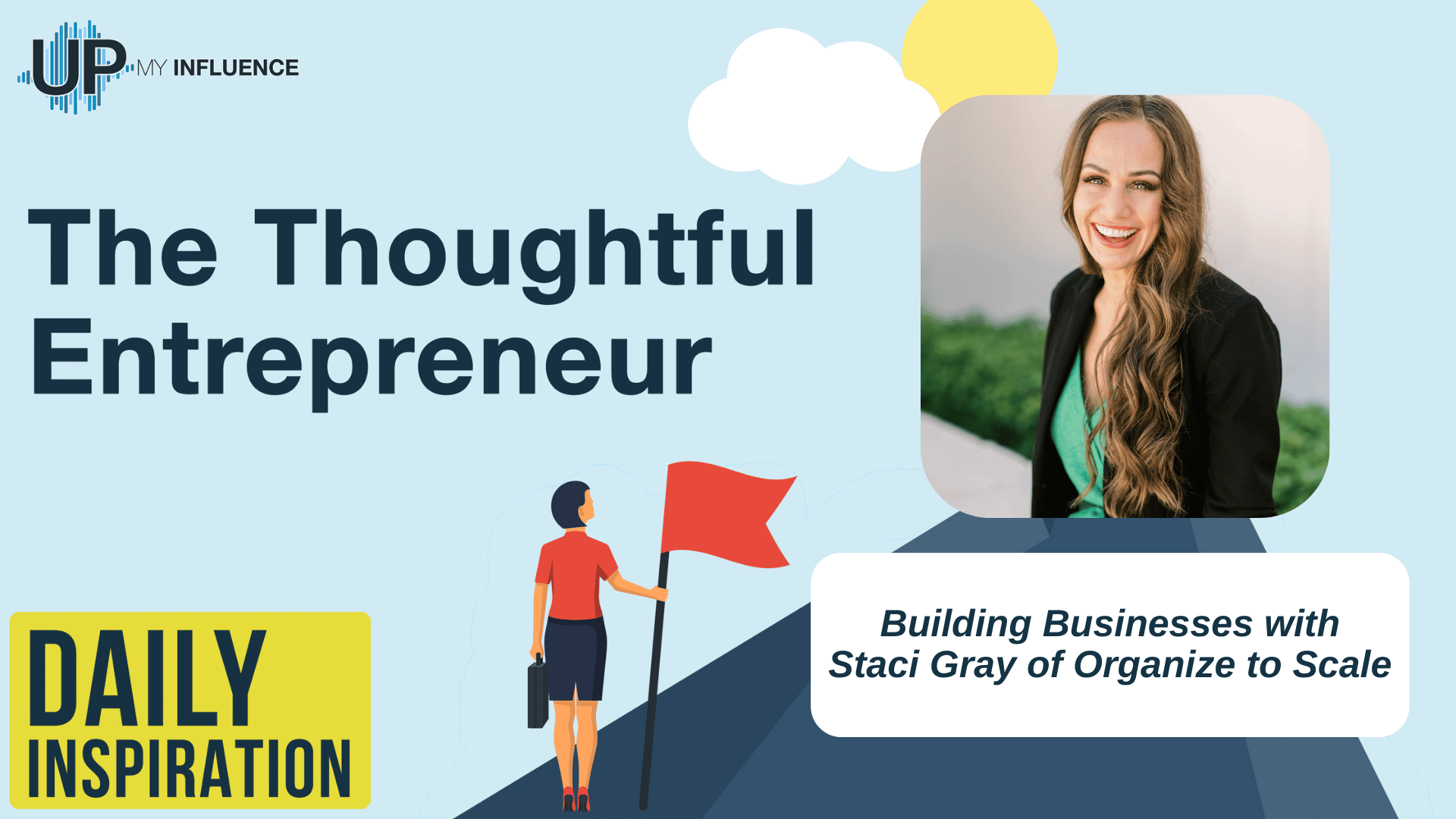THE THOUGHTFUL ENTREPRENEUR PODCAST
In this episode of the Thoughtful Entrepreneur, your host Josh Elledge speaks with the Founder & CEO of Organize To Scale, Staci Gray.

One of the critical takeaways Staci offered was the undeniable importance of systems and processes in business growth. As entrepreneurs, our passion drives us, but the systems we put in place turn that passion into a scalable reality.
Staci drove home that without a solid foundation of documented processes, such as standard operating procedures (SOPs) and checklists, we're essentially flying blind. These tools are the bedrock of delegation and operational efficiency, allowing us to replicate success and maintain quality as we grow.
Many entrepreneurs have faced resistance when it comes to documenting processes. It can feel daunting, but Staci shared some practical tips to make it more manageable. She suggested using screen sharing and recording tools to capture tasks in real-time.
Staci also emphasized the value of playbooks in achieving team alignment. These comprehensive guides ensure everyone is on the same page and that tasks are executed clearly and consistently.
Staci also outlined the structure of her program, which begins with a three-day strategic planning session. This intensive period is followed by 90-day reviews, which serve as checkpoints to assess progress and make necessary adjustments.
Key Points from the Episode:
- Importance of creating systems and processes for business scalability
- Channeling passion into creating efficient systems
- Documenting processes through standard operating procedures (SOPs) and checklists
- Practical tips for overcoming resistance to documenting processes
- Value of playbooks in aligning team members and ensuring task clarity
- Structure of Stacy's program: three-day strategic planning session and 90-day reviews
- Holistic approach to organizing businesses for growth
About Staci Gray:
Staci Gray is a seasoned professional with over 20 years of experience helping real-world businesses scale. She focuses on bridging the gap between ideas and profits, ensuring rapid execution for tangible progress and results.
Staci's vision is to free innovative leaders from operational chaos, enabling them to tackle real-world problems effectively and humanely while achieving quick profitability.
She is passionate about supporting mission-driven leaders who use their ideas, influence, and intellect to create successful businesses. Staci empowers them to scale up by providing practical tools and training.
Her approach ensures these leaders build a strong business foundation without compromising their core values or sacrificing personal relationships. Staci stands out for her commitment to progress, results, and the human aspect of business leadership.
About Organize To Scale:
Organize to Scale positions itself as an invaluable co-pilot for mission-driven leaders, aiming to simplify scaling operations. They understand that the primary challenges in business growth are personnel management and financial stability. Recognizing that hiring the right people is crucial, they emphasize establishing a strong company culture with clear processes and procedures.
The services offered focus on building a foundation of character, competency, trust, transparency, and accountability. They advocate for open communication, relentless growth, and high personal responsibility. Their approach is likened to having a pack of faithful Dobermans – dedicated, hard-working, and supportive, with a therapeutic value.
Organize to Scale is committed to helping businesses transform through continuous action, offering support at every stage of personal and professional growth. Their goal is to be an integral, active part of the business's journey.
Tweetable Moments:
01:17 – “Most entrepreneurs set out to build businesses to create some type of freedom, but they end up trapped in the very businesses designed to create their freedom.”
15:47 – “You can't really scale your business until you learn to scale yourself, and that is such a head game journey versus tactics.”
Apply to be a Guest on The Thoughtful Entrepreneur:
https://go.upmyinfluence.com/podcast-guest
Links Mentioned in this Episode:
Want to learn more? Check out Organize To Scale website at
Check out Organize To Scale on LinkedIn at
https://www.linkedin.com/company/organize-to-scale/
Check out Staci Gray on LinkedIn at
https://www.linkedin.com/in/stacigray/
Check out Staci Gray on Facebook at
https://www.facebook.com/official.staci.gray
Check out Staci Gray on Instagram at
https://www.instagram.com/staci_gray/
More from UpMyInfluence:
We are actively booking guests for our The Thoughtful Entrepreneur. Schedule HERE.
Are you a 6-figure consultant? I’ve got high-level intros for you. Learn more here.
What is your #1 Lead Generation BLOCKER? Take my free quiz here.
Want to learn more about all the podcasts managed by UpMyInfluence? Opt in here.

